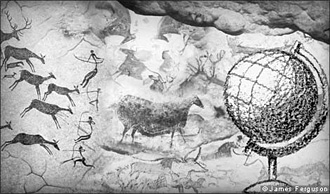
|  |  |  Editorials | Opinions | December 2008 Editorials | Opinions | December 2008  
And Now for a World Government
 Gideon Rachman - Financial Times Gideon Rachman - Financial Times
go to original


| | BOXTEXT |  |
I have never believed that there is a secret United Nations plot to take over the US. I have never seen black helicopters hovering in the sky above Montana. But, for the first time in my life, I think the formation of some sort of world government is plausible.

A “world government” would involve much more than co-operation between nations. It would be an entity with state-like characteristics, backed by a body of laws. The European Union has already set up a continental government for 27 countries, which could be a model. The EU has a supreme court, a currency, thousands of pages of law, a large civil service and the ability to deploy military force.

So could the European model go global? There are three reasons for thinking that it might.

First, it is increasingly clear that the most difficult issues facing national governments are international in nature: there is global warming, a global financial crisis and a “global war on terror”.

Second, it could be done. The transport and communications revolutions have shrunk the world so that, as Geoffrey Blainey, an eminent Australian historian, has written: “For the first time in human history, world government of some sort is now possible.” Mr Blainey foresees an attempt to form a world government at some point in the next two centuries, which is an unusually long time horizon for the average newspaper column.

But – the third point – a change in the political atmosphere suggests that “global governance” could come much sooner than that. The financial crisis and climate change are pushing national governments towards global solutions, even in countries such as China and the US that are traditionally fierce guardians of national sovereignty.

Barack Obama, America’s president-in-waiting, does not share the Bush administration’s disdain for international agreements and treaties. In his book, The Audacity of Hope, he argued that: “When the world’s sole superpower willingly restrains its power and abides by internationally agreed-upon standards of conduct, it sends a message that these are rules worth following.” The importance that Mr Obama attaches to the UN is shown by the fact that he has appointed Susan Rice, one of his closest aides, as America’s ambassador to the UN, and given her a seat in the cabinet.

A taste of the ideas doing the rounds in Obama circles is offered by a recent report from the Managing Global Insecurity project, whose small US advisory group includes John Podesta, the man heading Mr Obama’s transition team and Strobe Talbott, the president of the Brookings Institution, from which Ms Rice has just emerged.

The MGI report argues for the creation of a UN high commissioner for counter-terrorist activity, a legally binding climate-change agreement negotiated under the auspices of the UN and the creation of a 50,000-strong UN peacekeeping force. Once countries had pledged troops to this reserve army, the UN would have first call upon them.

These are the kind of ideas that get people reaching for their rifles in America’s talk-radio heartland. Aware of the political sensitivity of its ideas, the MGI report opts for soothing language. It emphasises the need for American leadership and uses the term, “responsible sovereignty” – when calling for international co-operation – rather than the more radical-sounding phrase favoured in Europe, “shared sovereignty”. It also talks about “global governance” rather than world government.

But some European thinkers think that they recognise what is going on. Jacques Attali, an adviser to President Nicolas Sarkozy of France, argues that: “Global governance is just a euphemism for global government.” As far as he is concerned, some form of global government cannot come too soon. Mr Attali believes that the “core of the international financial crisis is that we have global financial markets and no global rule of law”.

So, it seems, everything is in place. For the first time since homo sapiens began to doodle on cave walls, there is an argument, an opportunity and a means to make serious steps towards a world government.

But let us not get carried away. While it seems feasible that some sort of world government might emerge over the next century, any push for “global governance” in the here and now will be a painful, slow process.

There are good and bad reasons for this. The bad reason is a lack of will and determination on the part of national, political leaders who – while they might like to talk about “a planet in peril” – are ultimately still much more focused on their next election, at home.

But this “problem” also hints at a more welcome reason why making progress on global governance will be slow sledding. Even in the EU – the heartland of law-based international government – the idea remains unpopular. The EU has suffered a series of humiliating defeats in referendums, when plans for “ever closer union” have been referred to the voters. In general, the Union has progressed fastest when far-reaching deals have been agreed by technocrats and politicians – and then pushed through without direct reference to the voters. International governance tends to be effective, only when it is anti-democratic.

The world’s most pressing political problems may indeed be international in nature, but the average citizen’s political identity remains stubbornly local. Until somebody cracks this problem, that plan for world government may have to stay locked away in a safe at the UN.

gideon.rachman(at)ft.com |

 |
|  |



